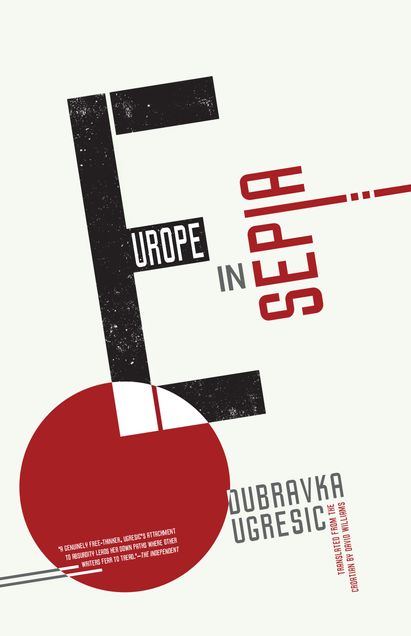Event Highlights: Europe in Sepia – A Reading and Conversation with Dubravka Ugresic
On Thursday, November 21, we had the pleasure of hosting one of Europe’s most penetrating cultural commentators, the novelist and essayist Dubravka Ugresic, as part of our ongoing European Voices series. Her visit to the United States was funded in part by a grant to the Center for the Study of Europe from the European Commission Delegation in Washington, DC. The event was cosponsored by the American Council on Learned Societies and the literary journal AGNI. Ugresic read the titular essay from her forthcoming Europe in Sepia, translated from Croatian by David Williams, to be published by Open Letter Books in February 2014.

Hurtling between Weltschmerz and wit, drollness and diatribe, entropy and enchantment, it’s the juxtaposition at the heart of Dubravka Ugresic’s writings that saw Ruth Franklin dub her “the fantasy cultural studies professor you never had.” In Europe in Sepia, Ugresic, ever the flâneur, wanders from the Midwest to Zuccotti Park, the Irish Aran Islands to Jerusalem’s Mea Shearim, from the tristesse of Dutch housing estates to the riots of south London, charting everything from the listlessness of Central Europe to the ennui of the Low Countries. One finger on the pulse of an exhausted Europe, another in the wounds of postindustrial America, Ugresic trawls the fallout of political failure and the detritus of popular culture, mining each for revelation.
Infused with compassion and melancholic doubt, Europe in Sepia centers on the disappearance of the future, the anxiety that no new utopian visions have emerged from the ruins of communism; that ours is a time of irreducible nostalgia, our surrender to pastism complete. Punctuated by the levity of Ugresic’s raucous instinct for the absurd, despair has seldom been so beguiling.
Dubravka Ugresic is the author of several works of fiction, including The Museum of Unconditional Surrender and The Ministry of Pain, and several essay collections, including Nobody’s Home and Karaoke Culture. In 1991, when war broke out in the former Yugoslavia, Ugresic took a firm anti-nationalistic stand and was proclaimed a “traitor,” a “public enemy,” and a “witch,” and was exposed to harsh and persistent media harassment. As a result, she left Croatia in 1993 and currently lives in Amsterdam.
Following the reading, a lively conversation ensued, moderated by Igor Lukes, professor of history and international relations at Boston University and Honorary Consul of the Czech Republic in Boston.
Listen to this lecture on WBUR or watch the video on BUniverse:

